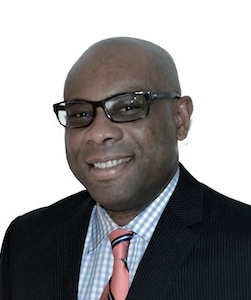
Look to the Cities for Answers
Kailee Jordan and Noureen Ramzy | April 12, 2015
Responding To: Week 11: Beyond Economics
Jemila Abdulai
The words “leader” or “leadership” evoke, for many in the developing world, the image of a political leader: someone chosen by the people to lead (if you are in a democratic setting) or someone who has risen to the occasion (in the case of a monarchy or ‘accidental’ leader). Very rarely do you hear people call the men and women with creative ideas, a relentless quest for knowledge, who come up with alternative explanations and perspectives, leaders. But these thought leaders play an equally, if not more, important role in moving a country or community from point A to point B, particularly where social norms, mindsets and perceptions are concerned.
In his presentation, Kaushik Basu highlighted the need to create a space for ideas to be discussed. I agree with him. His example of the default preferences for organ donation in Austria and Germany highlights a very important point: the “default” might not actually be representative of a local situation, country’s needs, or a community’s aspirations. And so, in addition to creating a space for discussion, we need to make space at the decision-making table for thought leaders as well – not just political, business and civil society leaders which seems to be the default. The risk of not doing so is having the same ideas, propositions, explanations of phenomena regurgitated over and over again.
Where can we find such thought leaders who aren’t necessarily mainstream, but have a good understanding of mainstream theories and issues, as well as areas where a positive disruption in mindsets and social norms can occur? An obvious place would be universities and other tertiary institutions. Countries like South Korea and Malaysia offer important lessons on how research and development can help turn around an economy. And yet, despite the fact that university students are usually required to submit lengthy exposés on one issue or another, their ideas never see the light of day beyond a brief encounter with a professor for a final grade, and ultimately, miss out on entering the debate space altogether. I find this to be rather unfortunate given the unique opportunity not just to posit solutions to current and new challenges, but also to do so in a space of relatively low-risk and a lower inclination for pushback should one opt against the default choice or social norm. By design, universities can be hotbeds of creativity and innovation, with the right mechanisms, environment, and incentives.
At a global level, more thought leaders from the Global South should attend and participate in the numerous discussion panels that take place, particularly in development and foreign policy hubs like Washington, DC. In a similar vein, top-notch educational institutions should make more effort to ensure that their professors and staff have the specialized knowledge they claim to offer when promoting their programs. Too often, you find that a well-acclaimed university or educational institution runs what is considered to be a top program, African Studies for instance, and yet, not one professor out of a teaching staff of over thirty is actually from the continent or has lived and worked in an African country for an extended period of time. That materially affects what students learn or expect and, down the line, what they practice as development practitioners.
In many ways the world is at a precipice of new thinking. Why? Because much of the “old thinking” has proven ineffective or incapable of addressing the plethora of problems. Many have metamorphosed as a result. By highlighting and creating the space for thought leaders, we open up possibilities to address key global development challenges, instead of relying on our default mindsets.
Jemila Abdulai currently works for the African Development Bank where she manages events across Africa, liaising with development practitioners in the government, private sector, and civil society.

Kailee Jordan and Noureen Ramzy | April 12, 2015

Lauren Corke | April 12, 2015

O. Felix Obi | April 12, 2015